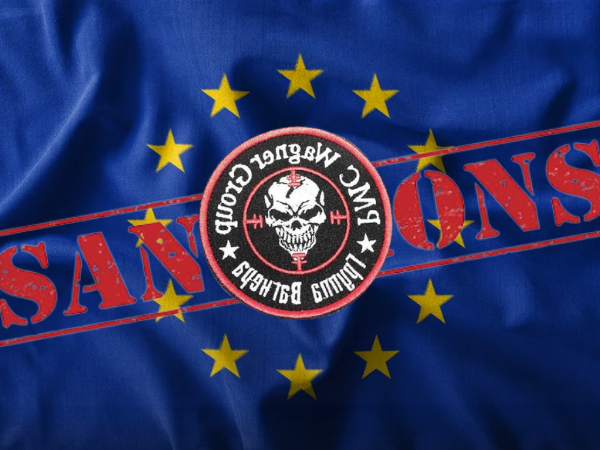
The news came from Rikard Jozwiak, Radio Free Europe reporter in Brussels.
In his tweet Tuesday, he said that ‘EU ambassadors have today decided to green light sanctions against the Wagner group. It will also add 3 people associated with the group on its human rights sanction regime, 1 person on its Libya listings, 3 on its Ukraine list and 2 people and 3 entities on its Syria list. All from Russia’.

The sanctioning list will include former officer of the Russian special forces, head of the group Dmitry Utkin, one of the contractors in Syria Stanislav Dychko, Valery Zakharov involved in the activities in the Central African Republic and Denis Kharitonov, who commanded a platoon of portable anti-aircraft missile systems and personally admitted that he shot down a Ukrainian helicopter and two SU-25 planes in Donbas.
The Wagner group mercenaries first appeared in eastern Ukraine in 2014, as it was evidenced by the Ukrainian intelligence at the time
The Wagner group is linked to horrific crimes against humanity and violations of international humanitarian law around the world, for which the European Union is currently punishing Wagnerians with sanctions.
Wagnergate
In late April, Belarus law-enforcement agencies reported arrests of 33 ‘Wagner’ paramilitary group members in Minsk who allegedly arrived in the country to ‘destabilize the situation before the elections’.
The journalist Yuriy Butusov and “Ukrainska Pravda’ news site informed that the Ukrainian intelligence service agencies were planning an own capture plan for the mercenaries earlier detained in Minsk.
According to media reports, the secret operation had been in works for a year and was supposed to lure the Wagner mercenaries to Venezuela offering to employ their services for oil rigs protection. In return, the Wagner group members would provide evidence on their ‘presence’ and ‘unlawful’ acts in Ukrainian Donbas.
Chief Intelligence Directorate head Vasyl Burba and SBU deputy head Ruslan Banaretsky reported to the president’s office on the upcoming plan. The confidental information was reportedly made known to president Volodymyr Zelensky, his top aide Andriy Yermak , Intelligence Committee chair Ruslan Demchenko, and President’s Office deputy head Roman Mashovets. The plan subsequently stalled after Zelensky’s top aide Andriy Yermak asked to put it off citing problems with a planned prison exchange.
In a few days time, the scheme suffered a complete failure after the Wagner mercenaries’ group arrest in Minsk.
Ukrainian intelligence professionals cite leaks from the Zelensky top officials as a probable cause for the operation failure.

 Radzivon “Gena” Batulin: Belarus is turning into North Korea
Radzivon “Gena” Batulin: Belarus is turning into North Korea 



